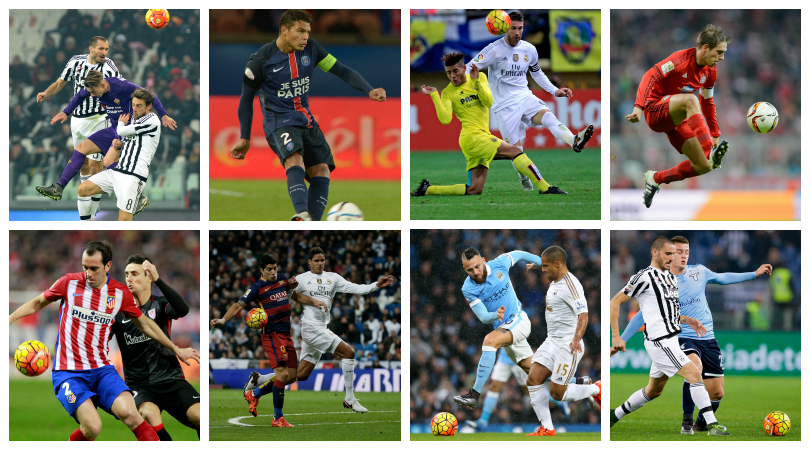Stopping Attacks | How Top Defenders Shape The Game
In football, a strong defense is often the foundation of a winning team. Top defenders are more than just players who block shots, they read the game, anticipate opponents’ moves, and orchestrate the backline with precision. Their ability to stop attacks can turn the tide of a match, making them indispensable. This article explores how elite defenders shape the game, blending skill, strategy, and leadership to dominate the defensive realm.
The Role Of A Modern Defender
In modern football, defenders are no longer just players who stop attackers they are the foundation of a team’s strategy. A top defender combines physical strength with tactical intelligence, constantly reading the game to anticipate opponent moves. Their role extends beyond simple tackles; they organize the backline, communicate with teammates, and maintain defensive shape under pressure.
Positioning and awareness are crucial for modern defenders. By staying alert and predicting runs, they can intercept passes, block shots, and disrupt the opponent’s rhythm. Speed and agility allow them to match fast attackers, while physicality ensures dominance in aerial duels and one-on-one challenges. Furthermore, defenders today are also expected to contribute offensively, distributing the ball accurately from the back to initiate attacks.
Watching top-level football through platforms like XoilacTV live soccer matches highlights how elite defenders balance defense and playmaking. Observing their decision-making in real-time reveals the subtle skills that often go unnoticed but define match outcomes. Modern defenders are strategic thinkers, leaders, and skilled technicians, proving that stopping attacks is both an art and a science, shaping the flow and success of every game.
Key Skills That Make Defenders Effective
Top defenders are defined not just by their presence on the pitch, but by a set of specialized skills that make them invaluable to their teams. To dominate in modern football, defenders must excel in multiple areas, blending physical ability with tactical intelligence.

Tackling And Interceptions
The ability to tackle cleanly and intercept passes is the most obvious skill for a defender. Effective tackling requires timing, precision, and understanding the opponent’s intentions. A mistimed tackle can lead to fouls or dangerous situations, while a well-executed interception can stop an attack before it begins. Great defenders read the game like a chess player, predicting passes and movements to cut off opportunities. Mastering these skills allows them to regain possession and shift momentum in favor of their team.
Positioning And Awareness
Positioning is key to controlling the defensive line. An effective defender knows where to be at all times, maintaining the shape of the backline and reducing gaps that attackers could exploit. Awareness goes hand in hand with positioning, understanding the ball, teammates, and opponents allows defenders to anticipate threats. High-level players constantly scan the field, adjusting their position to support teammates and respond to developing attacks. Awareness also involves understanding game context, such as when to step up or drop back, which is critical during set-pieces and counter-attacks.
Ball Control And Distribution
Modern defenders are not only tasked with stopping attacks but also with initiating them. Ball control and accurate passing are essential for transitioning from defense to offense. Defenders who can distribute the ball effectively reduce pressure on their team and open up attacking opportunities. They must be comfortable under pressure, able to play short passes to midfielders or long balls to forwards. By doing so, they help maintain possession and dictate the pace of the game. Coaches and fans often track these contributions using resources like a weekly football fixtures list, which highlights how defenders influence outcomes across multiple matches.
In conclusion, tackling, positioning, and ball distribution form the core of an effective defender’s skill set. Excelling in these areas requires both natural ability and continuous practice. By combining physical prowess with tactical intelligence and technical skill, defenders become true game-changers, capable of shaping results and maintaining stability in the team’s structure. Modern football demands versatility from defenders, making them indispensable figures in every competitive squad.
Iconic Defenders And Their Impact

Defenders may not always grab the headlines like prolific goal scorers, but their influence on the game is undeniable. Iconic defenders combine skill, intelligence, and leadership, leaving a lasting mark on football history. Their ability to read the game, organize defenses, and make crucial interventions often determines the outcome of high-stakes matches.
Legends Who Redefined Defense
Throughout football history, certain defenders have set new standards for excellence. Players like Paolo Maldini, Franco Baresi, and Cafu demonstrated that defense is both an art and a science. Maldini’s impeccable positioning and composure allowed him to neutralize some of the best attackers in the world, while Baresi’s leadership and tactical awareness made him the backbone of AC Milan’s formidable defense. Cafu, on the other hand, revolutionized the full-back role, combining relentless stamina with attacking prowess. These legends showed that defenders could influence both ends of the pitch, inspiring future generations to elevate their defensive game.
Modern Defenders Making A Difference
In today’s football, defenders continue to shape matches with their versatility and skill. Players like Virgil van Dijk, Sergio Ramos, and Trent Alexander-Arnold demonstrate how modern defenders blend traditional defensive duties with ball-playing abilities. Van Dijk’s strength and anticipation make him almost unbeatable in one-on-one situations, while Ramos combines defensive aggression with goal-scoring threats. Alexander-Arnold exemplifies how a full-back can dictate play from deep positions with precise passing and vision. Observing these players in action highlights how contemporary defenders influence team strategy, maintain stability, and even create scoring opportunities, proving that defense remains an integral part of football’s evolving tactics.
Iconic defenders, both past and present, exemplify the crucial role of defense in football. Their impact extends beyond stopping attacks; they inspire teammates, guide tactical execution, and often turn games in their team’s favor. By studying their skills and approach, aspiring players can understand how defense shapes the sport at every level.
Conclusion
In football, defenders are more than just a barrier; they are strategists, leaders, and playmakers. From legendary icons to modern stars, their ability to stop attacks, organize the backline, and influence play proves that effective defense is crucial for success, shaping both matches and the evolution of the game itself.

Andres Mateo
Andres Mateo is a fan of McDo Philippines as he has been eating at the restaurant for the last 18 year. He is a passionate writer who loves to write about everything offered at McDonald’s.

